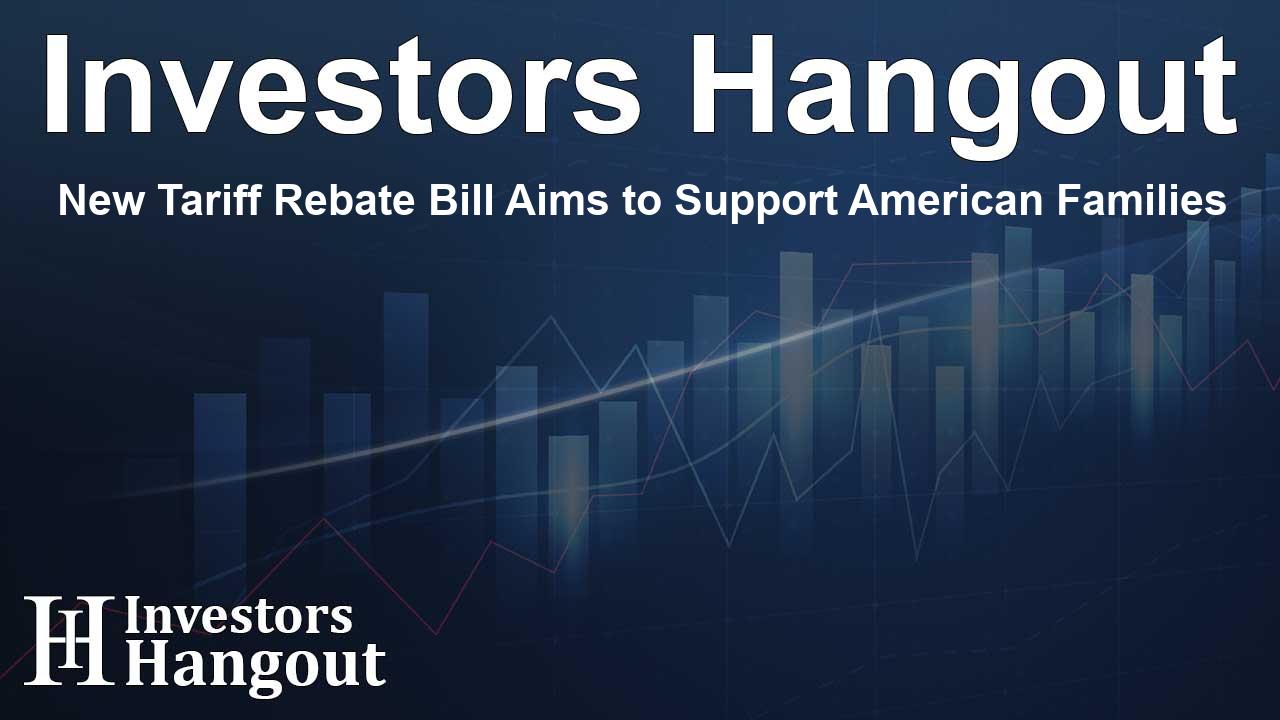New Tariff Rebate Bill Aims to Support American Families

Senator Hawley's New Initiative for American Families
Recent legislative efforts by Senator Josh Hawley are stirring hope among American families. In a bid to financially assist families facing economic pressures, Hawley has introduced a bill reminiscent of former President Donald Trump's previously proposed initiatives. This new proposal focuses on providing direct tariff rebates to families throughout the country.
The American Worker Rebate Act Overview
The bill, dubbed the ‘American Worker Rebate Act,’ suggests the government send checks worth a minimum of $600 to each adult and dependent child. This proposal aims to address the financial strain many families are experiencing as costs rise across various sectors. The structure of the bill designates it as a refundable tax credit, meaning that if approved, checks could be issued within the year.
Understanding the Financial Implications
The specifics of this proposed rebate indicate that families may expect a higher payout in instances where tariff revenue exceeds initial projections. However, income limitations are also part of the proposal. For joint filers with adjusted gross incomes above $150,000, heads of households earning over $112,500, and individuals exceeding $75,000, the rebate amount would be decrease by 5%.
Current Legislative Landscape
While the bill has gained attention, its path to becoming law remains uncertain. Notably, House Speaker Mike Johnson has expressed skepticism regarding direct payments to citizens, which adds an extra hurdle for the proposal.
The Importance of Rebate Checks
The context surrounding Hawley's bill highlights a broader conversation initiated by Trump about tariff-funded rebate checks for Americans. Trump previously considered such measures, indicating a strong desire to alleviate financial pressures while managing national debts. This grasp of economic fundamentals emphasizes the importance of supporting families through rebates.
Building on Previous Initiatives
Moreover, this isn’t the first time Hawley has sought to collaborate across party lines on economic relief efforts. His preceding work with Senator Bernie Sanders on stimulus check legislation during the pandemic underscores his commitment to leveraging bipartisan support for effective financial solutions.
Economic Considerations Surrounding Tariffs
According to estimates from economic analysts, Trump's tariffs could potentially generate substantial government revenue, approximating $2.5 trillion over ten years. Yet, there are concerns regarding the prospective burden this could place on the average household, with anticipated tax increases of about $1,300 this year alone and a projected $1,700 by 2026 due to elevated prices linked to these tariffs.
Recent Developments in Treasury Borrowing
The conversation around tariffs is further complicated by current economic actions taken by the U.S. Treasury. Plans to borrow over $1 trillion in the near term illustrate a necessity for recovering financial stability post-recent fiscal challenges. This situation underscores the urgency to consider both revenue and expenditure strategies that could benefit the broader economy.
Conclusion and Future Implications
As Senator Hawley's bill continues to unfold, its implications for American families and the economy as a whole remain to be seen. The significance of integrating direct financial assistance within legislative frameworks underscores a growing commitment to economic relief.
Frequently Asked Questions
What is the American Worker Rebate Act?
The American Worker Rebate Act is a proposed bill by Senator Josh Hawley that aims to provide American families with rebate checks of at least $600 per adult and child.
How much is the rebate for individual families?
Each adult and dependent child is set to receive a minimum of $600, with potential increases based on tariff revenue.
Are there any income limits for the rebate?
Yes, the rebate would be reduced by 5% for joint filers with incomes over $150,000, heads of households earning over $112,500, and individuals with incomes above $75,000.
What is the likelihood of the bill passing?
While currently under consideration, its passage is uncertain, with skepticism expressed by House Speaker Mike Johnson regarding direct payments to individuals.
Why does the rebate matter?
It aims to alleviate financial stress on families often impacted by rising costs and changing economic conditions, providing much-needed fiscal support.
About The Author
Contact Kelly Martin privately here. Or send an email with ATTN: Kelly Martin as the subject to contact@investorshangout.com.
About Investors Hangout
Investors Hangout is a leading online stock forum for financial discussion and learning, offering a wide range of free tools and resources. It draws in traders of all levels, who exchange market knowledge, investigate trading tactics, and keep an eye on industry developments in real time. Featuring financial articles, stock message boards, quotes, charts, company profiles, and live news updates. Through cooperative learning and a wealth of informational resources, it helps users from novices creating their first portfolios to experts honing their techniques. Join Investors Hangout today: https://investorshangout.com/
The content of this article is based on factual, publicly available information and does not represent legal, financial, or investment advice. Investors Hangout does not offer financial advice, and the author is not a licensed financial advisor. Consult a qualified advisor before making any financial or investment decisions based on this article. This article should not be considered advice to purchase, sell, or hold any securities or other investments. If any of the material provided here is inaccurate, please contact us for corrections.
